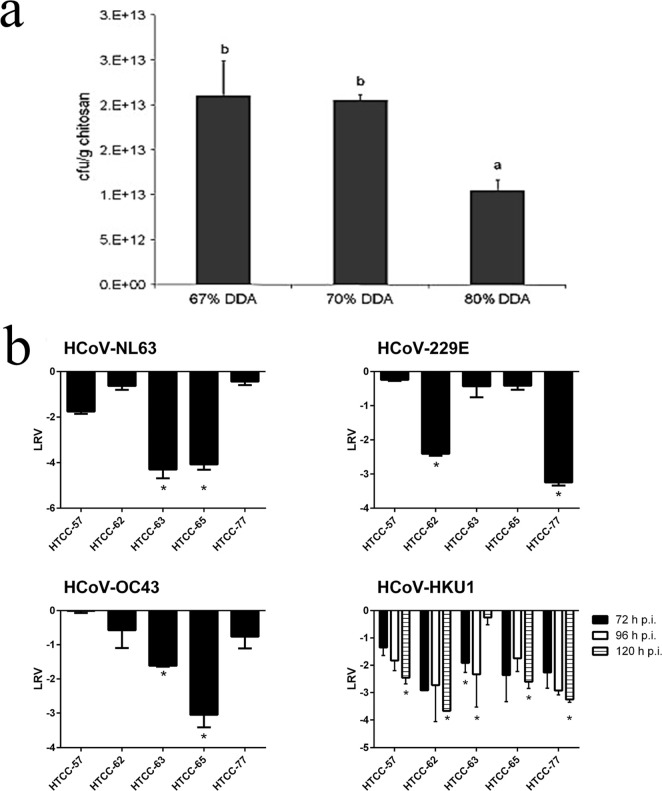Figure 7.
(a) Antibacterial property of 1.33 wt % HMW, 90% chitosan, 10% poly(ethylene oxide) (PEO) blended fibers is shown, as well as how the degree of deacetylation (DDA) plays an effect. Increasing the DDA% increases the amount of available protonated amine sites for antibacterial activity, but 80% DDA fibers here had a larger diameter, which leads to a smaller number of available sites. (b) Log reduction values of several common human coronaviruses by substituted chitosan derivatives (57–77% substituted). Error bars represent the standard error, and asterisks signify statistically significant differences (P < 0.05); hpi = hours post-infection. (a) Reproduced from ref (7). Copyright 2009 Elsevier. (b) Reproduced from ref (21) with open access CC-BY-4.0 license, 2016 PLoS.

